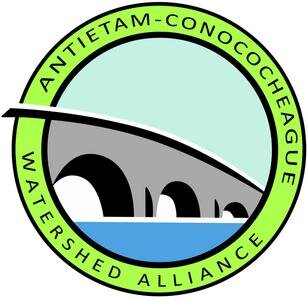Community Science Volunteer Info
Interested in becoming a Community Science volunteer?
Details and Frequently Asked Questions below:
Our Community Science program uses volunteers to collect data on the health of our local watersheds and provide outreach to our local community. Volunteers are involved with collecting/monitoring:
aquatic insects (benthic macroinvertebrates),
water quality sampling including:
bacteria,
road salt (chlorides) under IWLA Salt-Watch
nitrates under IWLA Nitrate Watch
continuous stream temperature loggers. Learn more about the Program.
What is the Time Commitment to Volunteer?
Volunteer time varies depending on the monitoring program you get involved with. We don't require a minimum amount of time commitment from our volunteers. In general:
Salt-Watch and Nitrate-Watch: this sampling is done on your own time and, if you have a stream on your own property, you may collect from that location. Each sampling event takes about 10 minutes. You send the results to either our coordinator or to the online Clean Water Hub directly. Reminders may be sent out to prompt you to sample.
On-Call Monitoring of Water Quality & Storm sampling: (last update 8.2024) Volunteers will be assigned select sampling locations to collect samples on an as-needed basis. We encourage volunteers to join us who have streams on their property or close to home. Supplies and training will be provided. This sampling only takes a few minutes if you live close to the stream being sampled. Additional time is required to deliver the sample to a drop location or network with another volunteer who may live close to you to get samples delivered to Boonsboro or Hagerstown. Sampling may occur immediately before and/or after storm events. We understand that life is messy and we do not require volunteers to sample every sampling event.
Benthic macroinvertebrate sampling: This sampling occurs early in the year, typically March and April. Team leaders take volunteers on morning or afternoon shifts primarily on weekends, but we do have a few that can take teams during the week. We try to do 2 sites per morning or afternoon shift at 3 hour shift, with 2-3 volunteers working a shift. This sampling is VERY weather & stream flow dependent, and shifts may get cancelled.
Temperature loggers: Typically we host a single 2-3 hour work and training day to assemble the loggers in late April/early May. At that time all the loggers are divided by available volunteers to deploy at select sites around the watershed on their own time before Memorial Day. The number of loggers/volunteer depends on your personal time availability. Each site takes about 15-20 minutes to deploy, not including driving time to each site. We request that volunteers work with buddies for safety. That buddy could be another ACWA volunteer or your personal friend/family member if you choose. Loggers are retrieved on your own schedule after Labor day.
Bacteria Monitoring sites: These effort is conducted in collaboration with Upper Potomac Riverkeeper and are collected on Wednesday mornings, prior to 10 am. Training is required and provided at the beginning of the season (May) on how to collect the water and take measurements accurately. Each site takes about 20 minutes, not including driving time and sample drop off time. Having a buddy is desired, especially if you are new.
How do I get started?
Complete the Interest Form There is no obligation at signup. Link in adjacent button
Complete the waiver form below
Start reviewing the training options below
Watch your email inbox for training and sampling specific sign up dates. Registrants will be contacted by email to schedule sampling in small groups throughout the year.
Waiver Form
Just as it is important to follow sampling protocol to collect good data, volunteers are to follow protocol provided by sampling leaders to ensure a safe working environment for all.
All Participants are required fill out our general waiver form annually.
Training
Many times training is provided by a team leader during a work event, however on occasion small group trainings may occur periodically and are announced by email to those who register to participate for the year. We encourage all volunteers to become familiar with the work they are doing with the program. There is no pressure to memorize or become proficient on any one skill of Community Science. We always work together as a team to ensure our studies are done well while out exploring and learning about our watershed. Regardless of activity, following safe working protocols are always expected.
Community Scientist volunteers should review:
instructional websites & videos, as available. (see Self-Training Links below)
Self-training Links
Team Leaders will always provide instructions on the activities for the day. We do however encourage our volunteers to learn more about the causes of water quality problems, how we are collecting data, and ways to improve land use\water quality. Links provided will be continually updated, so please continue to refer back to the page.
2021 Sampling Plan
A comprehensive sampling plan has been prepared for 2021 which provides expected sampling locations, methods, protocols, and data management. Additional sampling sites are being considered, so expect some changes.





